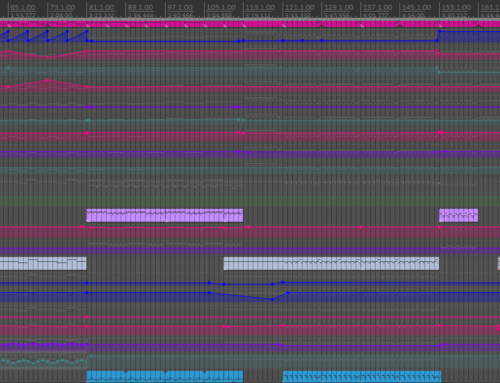tl;dr The key to learning is being aware that there is always more to know, while not giving up. Stay curious and turn your weaknesses around
Dunning Kruger
One thing that perplexes me most is how incompetent people are often the most vocal ones. It turns out this is a common thing and it has a name: the “Dunning-Kruger Effect”. This is basically a cognitive bias that keeps you blind from your own lack of skills and experience. Instead, you estimate your current skill level to be quite elevated. With this confidence, people tend to rush into lots of nasty situations and in a working environment it can turn out to be fatal.
Considering that, a lack of confidence can mean 2 things: either you are truly incompetent, or you have managed to stay clear of the hill of bloated confidence. One of the best ways to assess your skill level is to show your work to people of various experience in the field, and of course you must learn to deal with critique.
Find your best approach to learning things
There’s a saying that goes like “There is always someone who is better at it than you are”. This is so true, and it actually takes some effort not to let yourself be taken down by it. My approach to this problem is to accept the fact and expand horizontally, instead of vertically. So instead of becoming super specialized in one thing and attempt to achieve true mastery, I’ve made it my personal philosophy to learn as many diverse skills as possible.
So why do I stick with this method? It’s simple: it keeps me happy and I don’t get frustrated. I can foresee a lot of issues with trying to achieve mastery, speaking in a general sense.
Reaching mastery commonly implies that your knowledge is static, because you have found the “one perfect piece of wisdom”, patterns that you apply over and over. There is a problem with that: a lot of things aren’t static. Culture evolves, life decays and technology is changing at extreme speed. Of course, it gives you short-term practical advantage over your peers, but this knowledge is running the risk of becoming obsolete sooner than later. Even worse, you run the risk of betting everything on a single paradigm that one day gets replaced by another one. You will loose all your effort and energy you invested to reach the peak of knowledge. And this can turn out to be a problem, because the closer you get to mastery, the more energy or time you will have to invest in order to keep it.
Not that I advise against mastery. As long as a paradigm in effect, such “masters” are the ones that can uplift others by sharing their knowledge. If you are passionate about something and you know you can stick with it for the rest of your life, go on and reach for the stars.
In my opinion, true and sane mastery should be achieved by having solid knowledge of the fundamental parts of any topic, and being able to adapt to changes on another level by applying this fundamental knowledge. A master should be able to ask the right questions, not to give temporarily viable answers. The answers might change, but the questions will stay the same.
That being said, here’s something to motivate you: Don’t EVER feel stupid for asking questions.
Path of least resistance
When diving into a new topic and attempting to learn the ropes, it is crucial to keep track of your strengths and weaknesses. A horizontal approach to that means that I don’t spend too much time on one problem. Once I feel I’ve reached a dead end, I switch to something else all while keeping in mind that I’ll need to come back.
With the small pieces of experience I’m gaining in the “easy paths”, I become better at recognizing the areas where I’m lacking knowledge and defining concrete questions. These questions are fundamental for efficient research. This means that I’m learning a new technique almost every day, but I only spend time truly improving it after I know how it fits in the overall scheme of music production. Some techniques simply can be ignored in favor of something else that works better with the tools at hand or the goal in mind. I’d say I’ve spent about 70% of my time on only 20% of the techniques I’ve seen so far.
Still, it’s good to have a look and everything, draw lines and know where your knowledge stops.
Iteration
Something important when you’re starting out in any role is iteration, closely related to repetition, but better. However small your bits of knowledge, it can be very rewarding to apply new and unknown techniques to work you’ve previously considered to be done. This is how you learn the technique, and how you can estimate its worth and place in your workflow.
Before I created tracks for Flux and Folds of Consciousness, I was working on some private soundtracks for video games. Soon I was creating a new track every day because I got blocked, found errors in previous workflows or simply got new strokes of inspiration. Each new technique resulted in a new song. For me, this was an exploratory phase that brought me closer to the world of music production. I was literally learning by doing, because I had to research every single GUI item, every button, every term that I stumbled upon. I started filtering by importance and complexity, even though my judgement of those properties wasn’t yet truly refined for the domain of music production.
I got the impression that I’d get nowhere working like this. That was when I had a critical look back at my first works. It was quite eye-opening, because this told me how far I’ve got since I started. I thought ‘What if I apply my current knowledge to these old tracks?’. The reward was immense – the good ideas did not go to waste, and I was able to selectively apply techniques that really mattered to me. Repeat this some 30-50 times and you might actually have understood what you’re doing. This process of going over one thing after another and bringing it up to your current level of knowledge is what I mean by ‘Iteration‘.
For someone with a lack of proper self-esteem, this is something valuable, as it rubs your strengths and weaknesses right under your nose. You’ll be able to separate the wheat from the chaff. Persona Flux is actually one of the oldest tracks I’ve had around. I worked on it on at least 5 discrete major sessions lasting a week each, all at a different skill level. Thanks to an iterative process, the track was not lost in an obscure folder.



